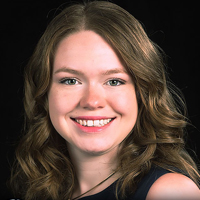
Texas A&M University senior Kevin Yao ’23 has been selected to receive a $10,000 scholarship from the Astronaut Scholarship Foundation (ASF).
Yao, who is pursuing dual bachelor's degrees in computer engineering and mathematics, is one of two 2022 Texas A&M recipients along with Mack Cleveland '23, a senior materials science and engineering major with a minor in mathematics.
The 2022 Astronaut Scholars class includes 68 students from 45 different partnering universities across the nation. Each was selected based on demonstrated initiative, creativity and excellence in undergraduate research and academics in their fields as well as their potential to become leaders in their scientific and professional pursuits.
Retired NASA astronaut and U.S. Air Force Colonel Eileen Collins, the first woman to pilot the Space Shuttle and first to command a Space Shuttle mission, will present Yao and Cleveland with their Astronaut Scholar awards October 18 as part of a 10 a.m. Astronaut Day ceremony in Rudder Auditorium on the Texas A&M campus. The program, which is co-sponsored by Texas A&M LAUNCH along with the Astronaut Scholarship Foundation, also will feature a public lecture by Collins. The event is free and open to the public, but tickets are required for entry and are available for download or in-person pick-up through the Memorial Student Center Box Office.
Yao's research applies his engineering and computer science experience toward medical applications, including a telemedicine app that uses machine learning and computer vision to screen for strokes in patients. The app was developed with Houston Methodist Hospital Chief of Medical Physics and Chief Research Information Officer Stephen T. Wong, who also is an adjunct faculty member in the Texas A&M Department of Biomedical Engineering. Yao published his research in the IEEE Xplore digital library in November 2021.
In addition, Yao discovered a connection between immune infiltration and Chromosome 20q in colon cancer patients through research conducted under Chao Cheng at Baylor College of Medicine. As a member of Cheng's lab, Yao created a model to analyze the effect of gene expression on cancer prognosis and found that inter-gene expressions are more informative than singular gene expression.
Most recently, Yao spent the past summer as a software development intern at Amazon while concurrently working with a startup to research cryptocurrency bridges. After graduation, he plans to pursue an M.D. as well as a Ph.D. in computer engineering en route to a career developing biomedical devices and applications while working as a researcher and practitioner.
For more than 35 years, the Astronaut Scholarship Foundation has identified and supported the best and brightest undergraduate students pursuing educations in STEM (science, technology, engineering and mathematics) fields across the nation. The Astronaut Scholarship is known for being among the most significant merit-based scholarships awarded to undergraduate STEM students. Candidates must be nominated by faculty of the participating universities based on their display of initiative, creativity and excellence in their chosen field.
In addition to a scholarship and membership in the Astronaut Scholar Honor Society, award recipients are given the opportunity to present at the Scholar Technical Conference and attend the Astronaut Scholarship Foundation’s Innovators Week & Gala as well as engage in lifelong professional development and mentoring programs with astronauts and Astronaut Scholar alumni.
Since the scholarship’s inception in 1986, Texas A&M has had 37 honorees, including 17 from the College of Arts and Sciences: Yao (2022); Cosmas Kravaris and Ryan Rahman (applied mathematics/statistics and biology, 2021); Johnathan Lo (molecular and cell biology/statistics, 2020); Oscar Gonzalez (chemistry, 2019); Ashley Hayden (biology, 2018); Brooke Versaw (chemistry, 2017); Kristin Maulding and Will Linz (molecular and cell biology and applied mathematics, 2015); Amelie Berger (environmental geoscience, 2014); Dillon Amaya (meteorology, 2013); David Rahmani (physics, 2009); Susan Koons (applied mathematics/psychology, 2008); Justin Wilson (mathematics/physics, 2005 and 2006); Benjamin Aurispa (mathematics, 2004); John Stewart IV (physics/mathematics, 2002 and 2003) and Phyllis McAdoo (geophysics, 1992).
The Astronaut Scholarship Foundation was established in 1984 by the six surviving Mercury 7 astronauts to aid the United States in retaining world leadership in the development of cutting edge science and technology. Today, more than 100 astronauts from the Mercury, Gemini, Apollo, Skylab and Space Shuttle programs have joined in the mission, resulting in more than $7 million in scholarships to more than 700 of the nation’s top scholars as well as technological innovations across the healthcare, energy, defense, aerospace and homeland security sectors.
For more information on the Astronaut Scholarship and other national and international awards recognizing student academic achievement, please see the National Fellowships section of the LAUNCH website
Astronaut Scholar Alumni Update
 2019 Texas A&M biology graduate and 2018 Astronaut Scholar Ashley (Hayden) Monahan will serve as a speaker for both the Scientific Connections Conference and American Dream Makers Entrepreneur Showcase as part of Astronaut Scholar Alumni Week, set for November 2-4.
2019 Texas A&M biology graduate and 2018 Astronaut Scholar Ashley (Hayden) Monahan will serve as a speaker for both the Scientific Connections Conference and American Dream Makers Entrepreneur Showcase as part of Astronaut Scholar Alumni Week, set for November 2-4.
A member of the Astronaut Scholarship Foundation Program Committee since 2020, Monahan previously participated in the Astronaut Scholarship Foundation’s Innovators Week & Gala in August after also speaking at the Apollo 16 50th Anniversary Celebration Dinner in Houston, where she reunited with NASA astronaut and Apollo 16 Moonwalker Charlie Duke, who presented her with her own Astronaut Scholar Award in September 2018 in Rudder Auditorium.
Monahan is a fourth year Ph.D. candidate in neuroscience at Baylor College of Medicine in Houston. She recently was awarded a prestigious National Institutes of Health National Research Service Award Predoctoral Fellowship to study how synaptic RNA binding proteins regulate memory using C. elegans. In addition, she is the founder of SciComm Consulting, LLC, a science communication and visualization company that helps researchers better communicate their science within the scientific community and with the public.
